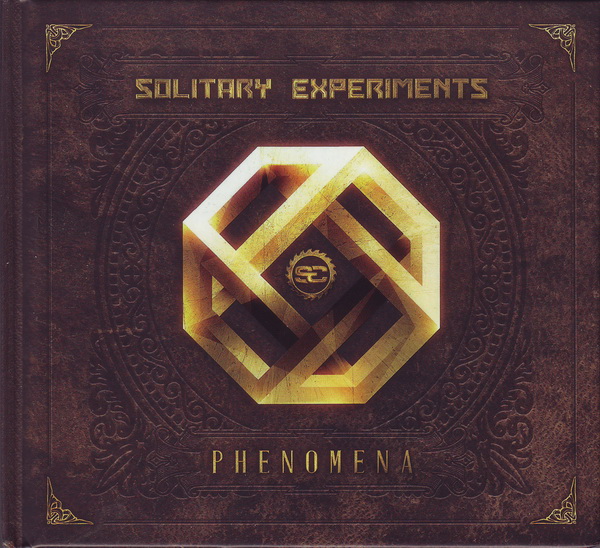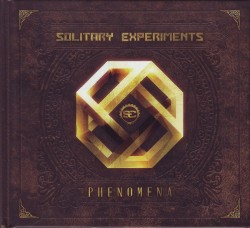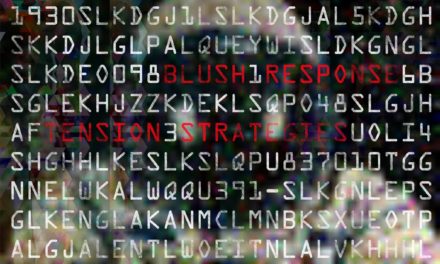Solitary Experiments
Phenomena
Out Of Line
Even when I was utterly disenchanted with and entirely sick of futurepop in the mid-oughts, I always held a special spot in my heart for Solitary Experiments, and in a lot of ways I’m at a loss to explain that. While yes, the German outfit’s roots do stretch further back than Ronan and co.’s utter domination of the planet at the turn of the millennium, much of what’s made them a festival and comp staple ever since then is utterly in simpatico with the genre’s most de rigeur markers. In consistently punching slightly above their weigh-in numbers, Solitary Experiments always maintained an underdog’s lovable appeal. However, in more or less circling the wagons, 2013’s Phenomena lives and dies by its appeal to the strictest of die-hards.
Very little has changed in Solitary Experiment’s approach since their last full-length appearance (2009’s In The Eye Of The Beholder), or even since their late 90s emergence out of a dark electro cocoon into a more unabashedly melodic mode: kick snares are still mammoth, woofingly side-chained rhythm sections feel utterly bricked in, and tinkling arpeggios carry the majority of the melodic and harmonic weight, apart from Dennis Schober’s vocals. With that formula in place, the quality of Phenomena‘s songs themselves becomes the only question.
For better or worse, the majority of Phenomena can be split down a line which cleaves post-millennial futurepop from Reagan-era synthpop. While the relative levity of the latter feels lively and almost cinematic in its idealism (check the Camouflage-like naivete of “Epiphany”), more “contemporary” tunes with an eye towards European club play drag Phenomena down into a morass of more unflattering comparisons: the heavy Eskil-isms of “No Salvation”, the “Rotersand live in ’07” vibe of “Steering Wheel”, and the umpteen “this feels like Tom Shear on an off day” moments I experienced during my numerous test drives of the record.
It’s a shame that so much of Phenomena sets itself up in the shadow of Solitary Experiments’ contemporary peers. When it breaks away from that formula and sets off for poppier fields, as on the slightly wistful and crepuscular “Beg You Pardon” (if the title is a Kon Kan reference I’ll gladly eat my shoe), it shows the keen ear for catchy melodies which Solitary Experiments have put to such good use in the past (even on more aggressive fare like “Seele Bricht” and “Glory & Honour“). Unfortunately, one has to chew one’s way through a battery of rubbery repasts to find such delicacies. There’s certainly some synth-poppy fun to be found on Phenomena, but to anyone who’s been keeping their head above the waves for the past ten years, it feels like too little, too late.







Trackbacks/Pingbacks